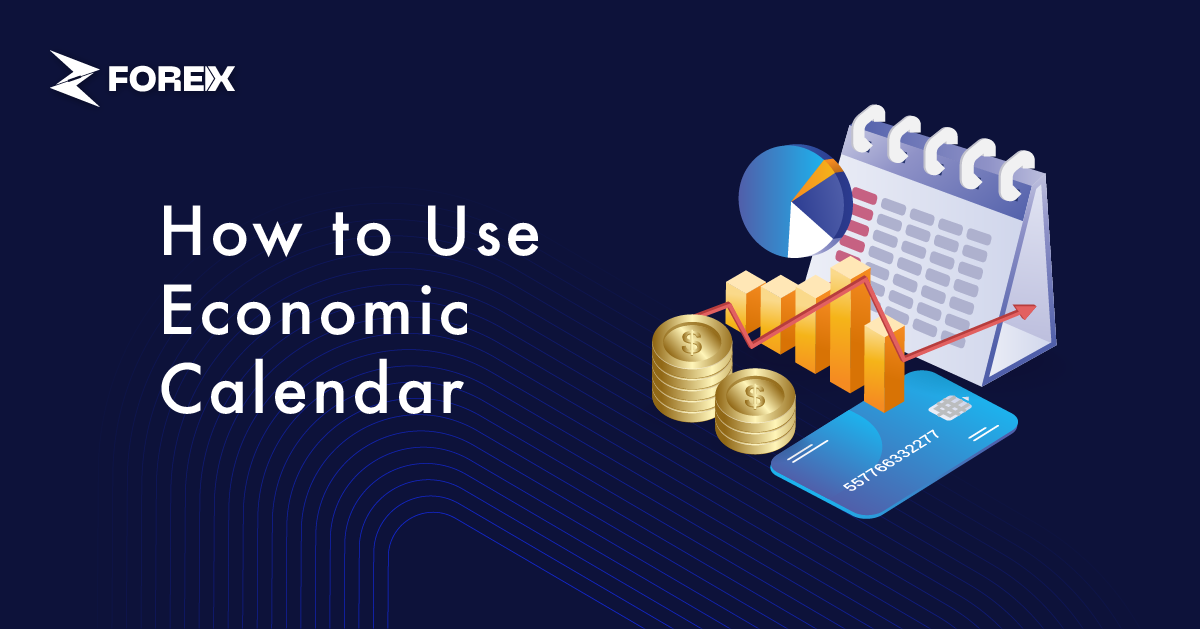
An economic calendar is a tool that lists major financial events and data releases that influence the markets. These events include things like interest rate decisions, employment reports, and GDP growth data. It help traders keep up with the news and developments when certain events are happening.
Economic calendars are updated regularly and are easy to access online. Most forex brokers provide their clients with these calendars. The goal is to help traders protect their investments by showing the timing and importance of events that could cause volatility in currency prices.
Events like interest rate announcements or employment reports can cause significant market reactions, which could either benefit or harm a trader’s position. By knowing when these events will take place with the help of economic calendars, traders can plan their strategy and potentially avoid risky situations.
Traders who use the economic calendar can choose to either trade during these times to capitalize on the volatility or avoid trading to reduce risk. Having this foresight allows for better planning and risk management, which is key in forex trading.
Learning how to read an economic calendar helps traders understand what awaits them in the near future. The calendar typically lists events in chronological order, showing the date and time of each release. Each event also comes with a level of expected market impact, ranging from low to high. High-impact events are the ones that usually cause the most market movement, making them particularly important for traders.
Economic calendars usually show three key pieces of data:
Comparing the forecasted data to the actual release, traders can assess whether the market is likely to move and in which direction.
Some events have a bigger impact on the forex market than others, especially those that cause significant volatility. Here’s some of them;
Using the economic calendar is simple once you know which events to focus on. Traders often plan their trades around the timing of high-impact events to take advantage of market volatility or to avoid risk. For example, you might choose to close an existing position before a major announcement to protect your gains or open a new position based on your expectations for the event.
Here’s how you can use the economic calendar effectively:
Look at the economic calendar at the start of each week or day to see which events are coming up. Identify events that might affect the currency pairs you are trading.
Check the forecasts compared to the previous release. If the forecast is significantly different from the previous data, there could be large market movements.
Decide whether you want to trade before or after the event. Some traders prefer to avoid trading during major announcements due to the unpredictability, while others may use these events to use potential price swings to their benefit.
What is an economic calendar used for in forex trading?
It is a tool that lists important financial events, allowing traders to plan their trades based on expected market movements.
What types of events are included in an economic calendar?
Events like interest rate decisions, employment data (such as the U.S. Non-Farm Payroll), inflation reports, and GDP releases.
How do economic events affect currency prices?
Major economic announcements can lead to volatility. For example, an interest rate hike could make a currency stronger, while a weak jobs report could weaken it.
Can I trade during economic events?
Yes, but be cautious. High-impact events can create significant volatility, which can be risky for traders without a solid plan.
How often should I check the economic calendar?
Ideally, you should check it daily or at the beginning of each week to keep an eye on the upcoming events.
What are high-impact events?
High-impact events are those expected to cause the most market movement, such as central bank announcements and major economic reports.
 Silver Rally Ahead? Supply Deficit Meets Rising Demand
Silver Rally Ahead? Supply Deficit Meets Rising Demand
A new silver rally may be forming as supply deficits deepen and China’s demand grows. Here’s what is driving the momentum.
Detail Fed Rate Cuts 2026: How to Position Now
Fed Rate Cuts 2026: How to Position Now
Fed rate cuts in 2026 could reshape markets. See expectations, asset impact, and positioning strategies for bonds, gold, stocks, and USD.
Detail Analyzing the U.S. Labor Market Outlook for 2026
Analyzing the U.S. Labor Market Outlook for 2026
Year’s first jobs report looked reassuring. A closer breakdown, however, tells a more layered story about the direction of the labor market.
DetailThen Join Our Telegram Channel and Subscribe Our Trading Signals Newsletter for Free!
Join Us On Telegram!